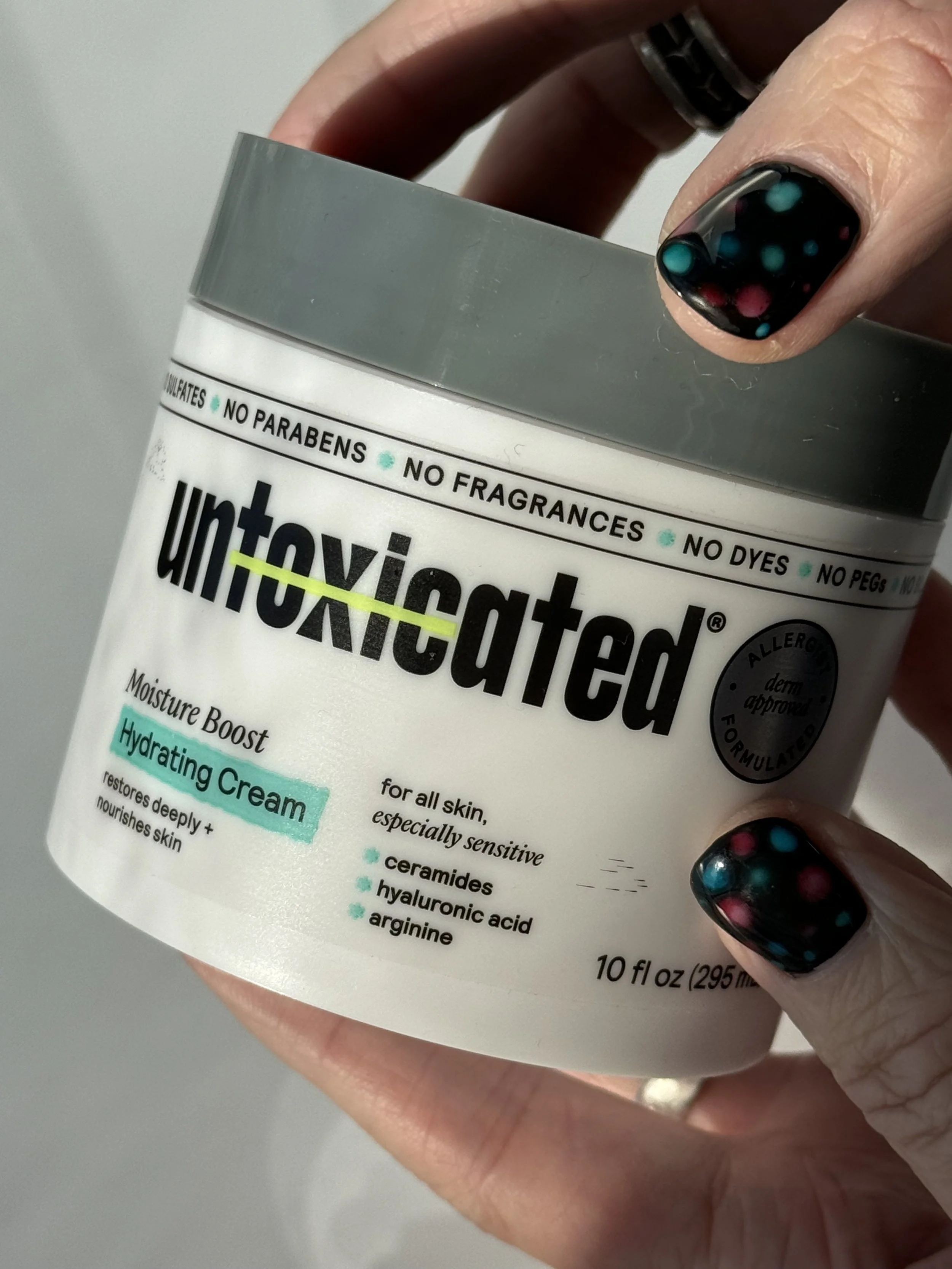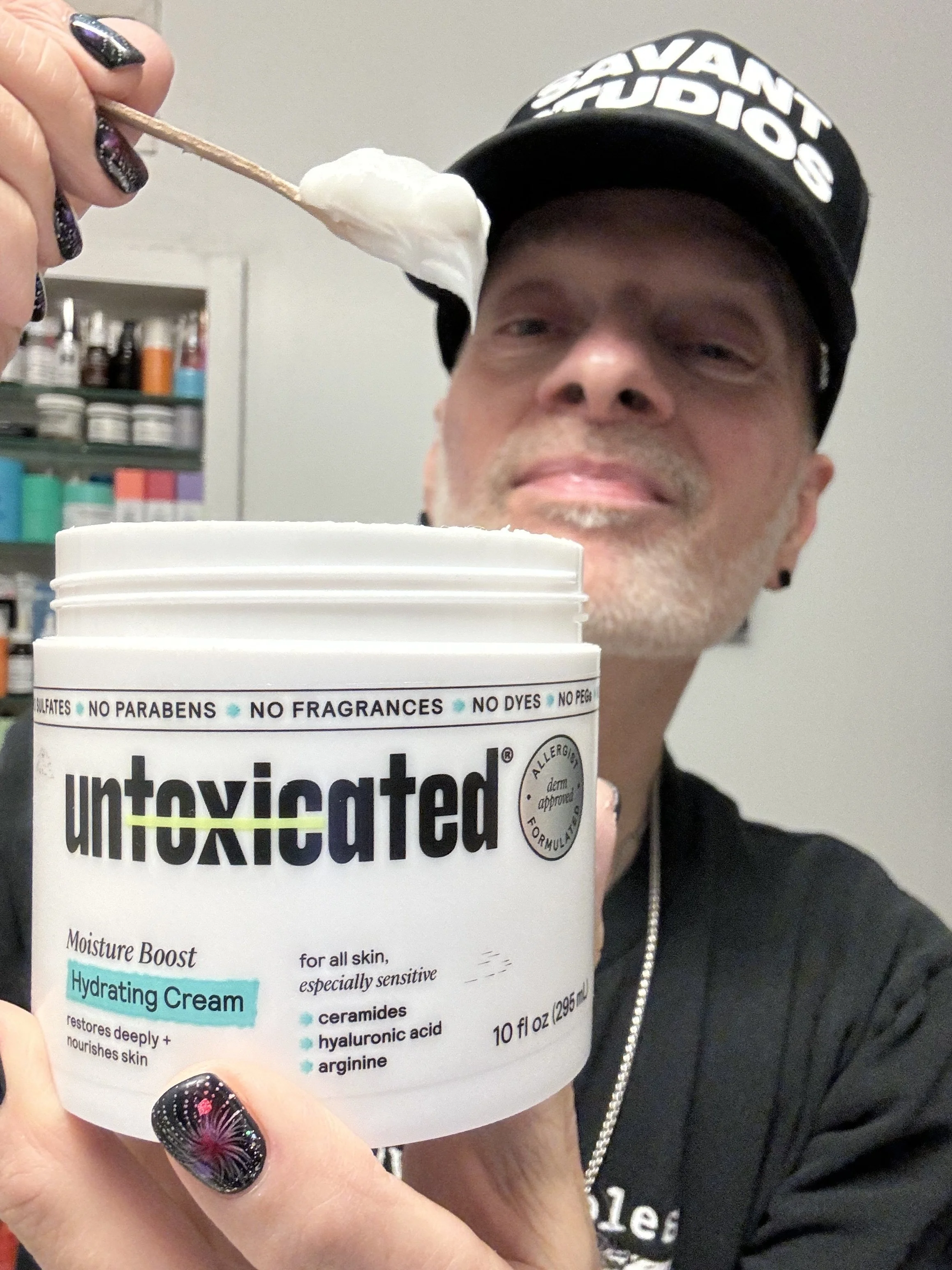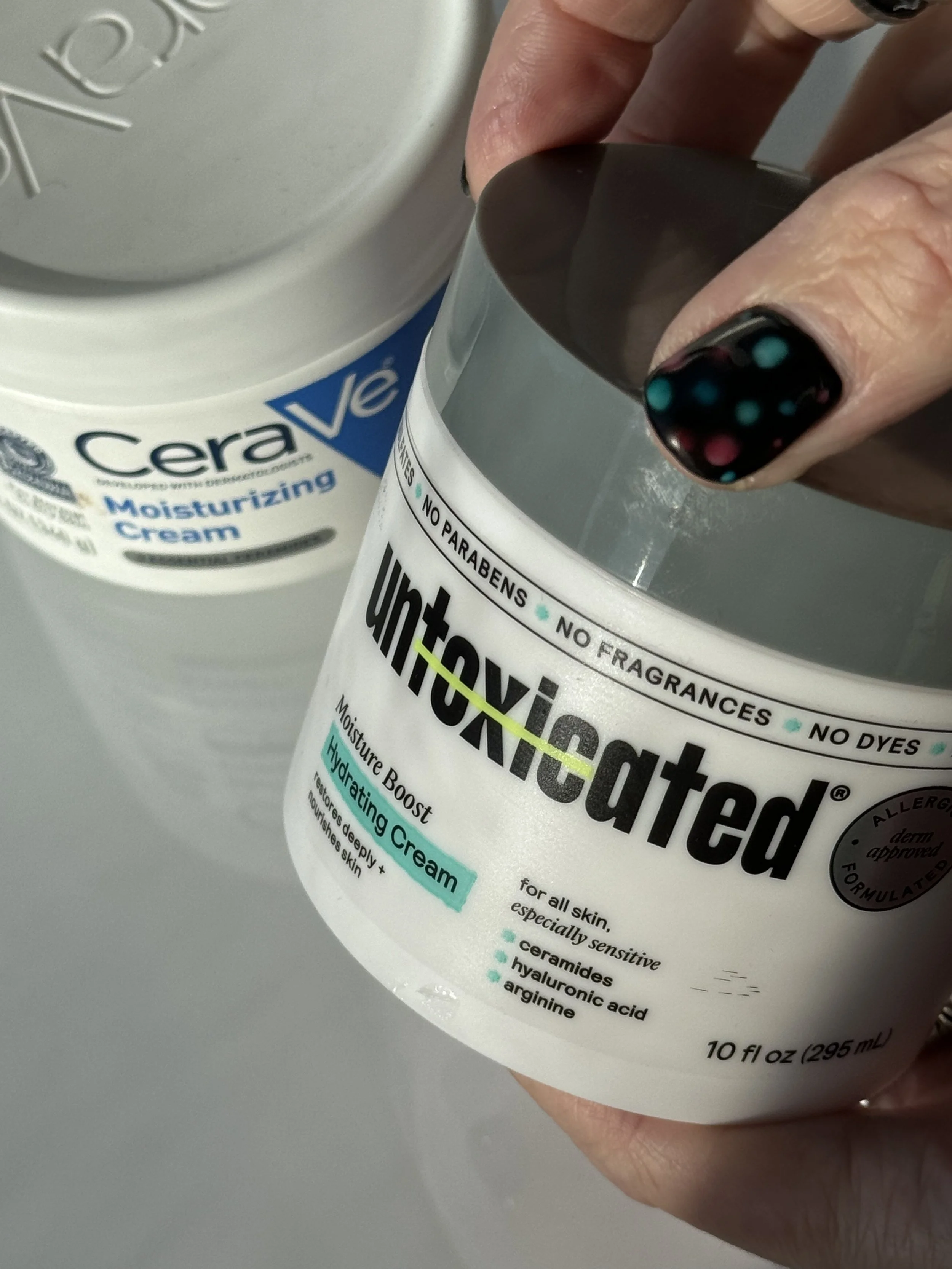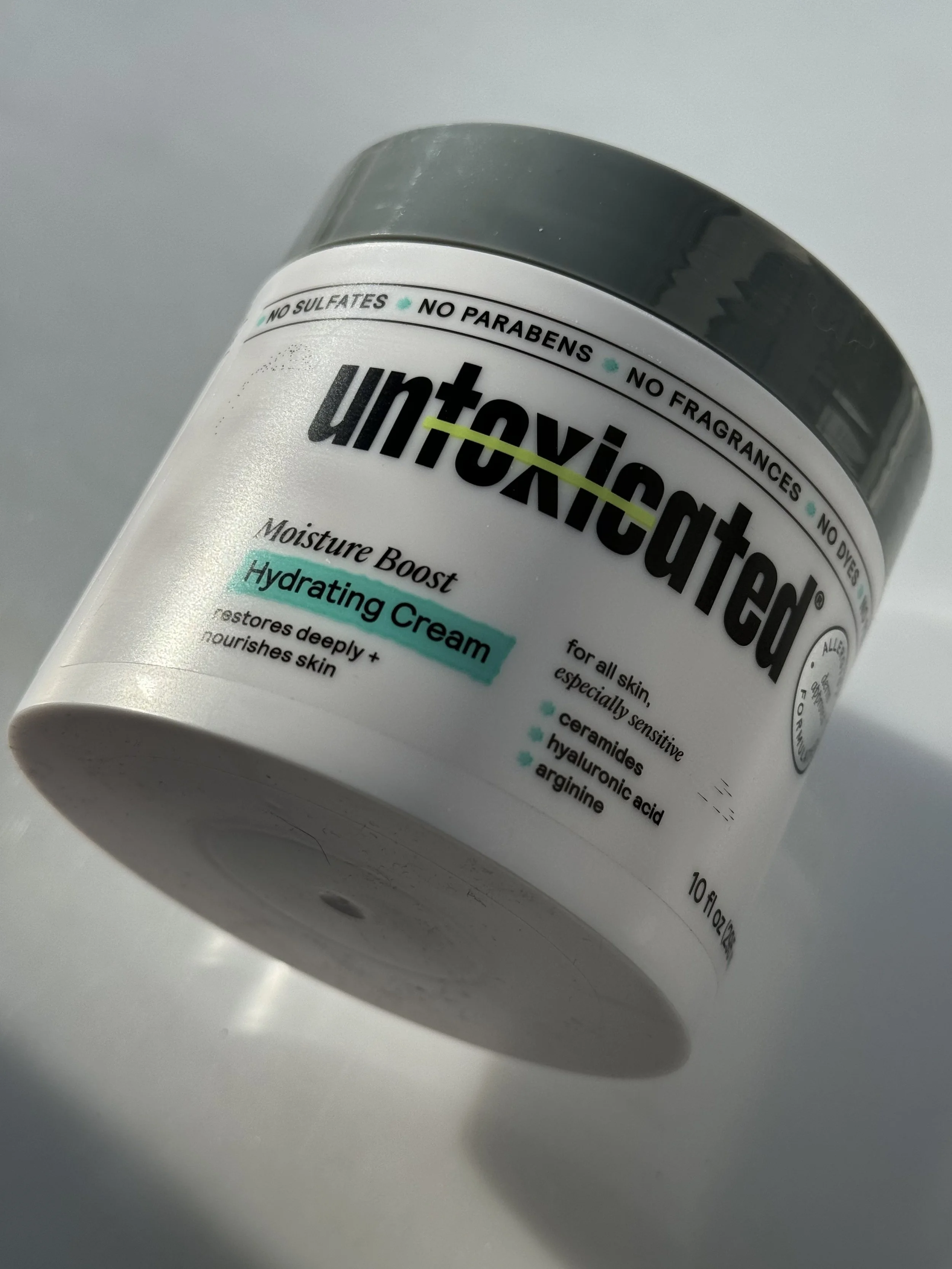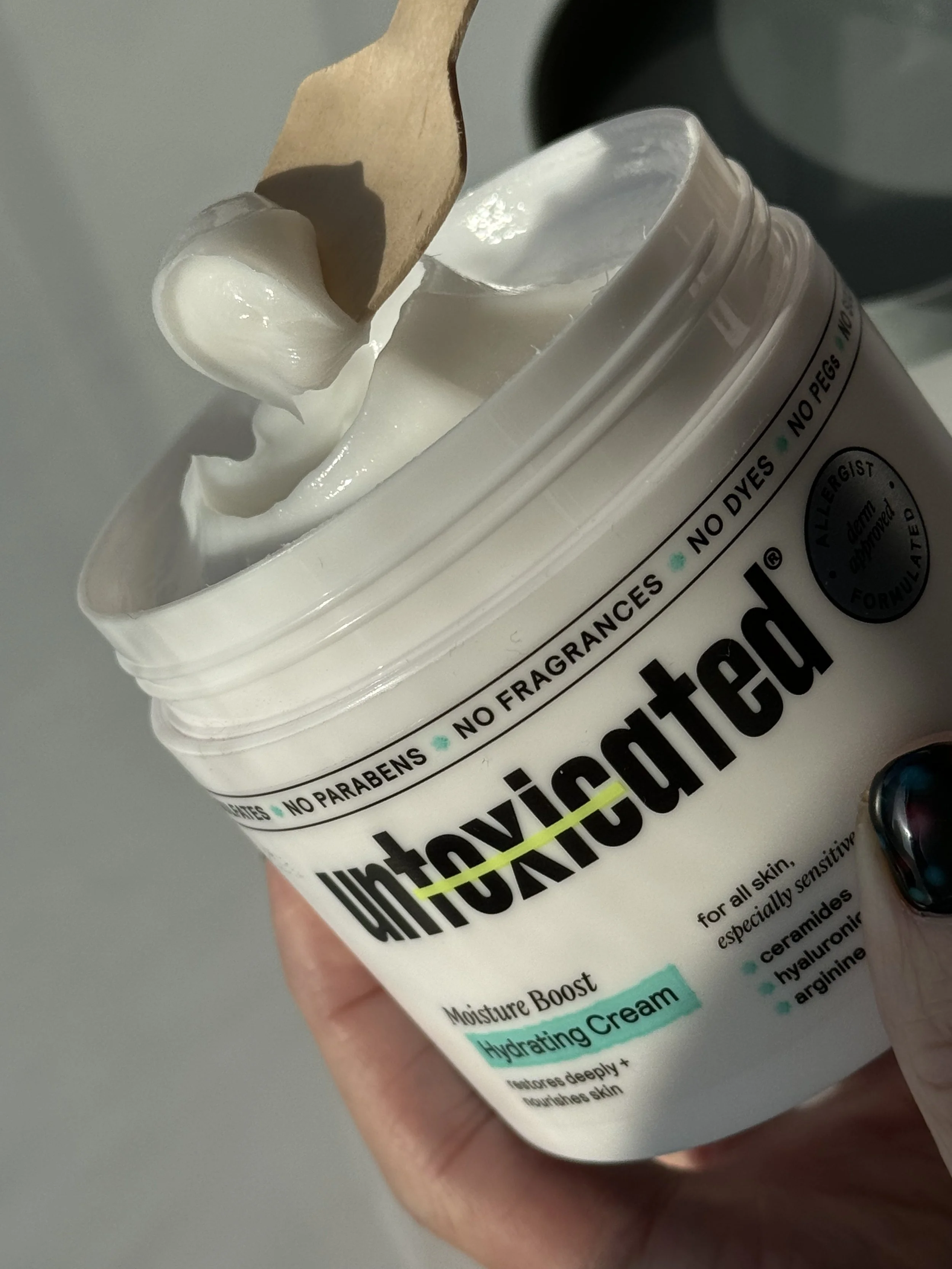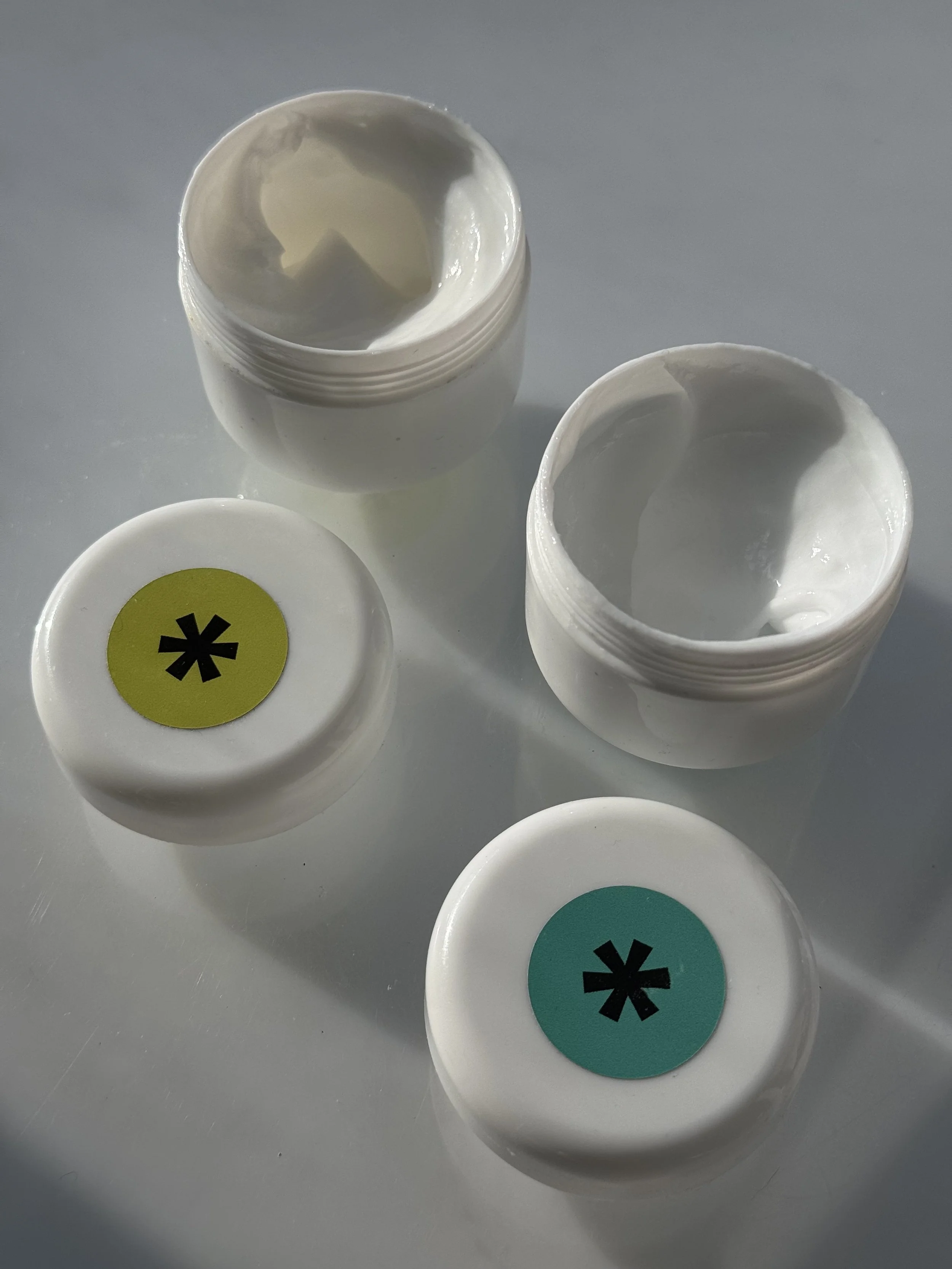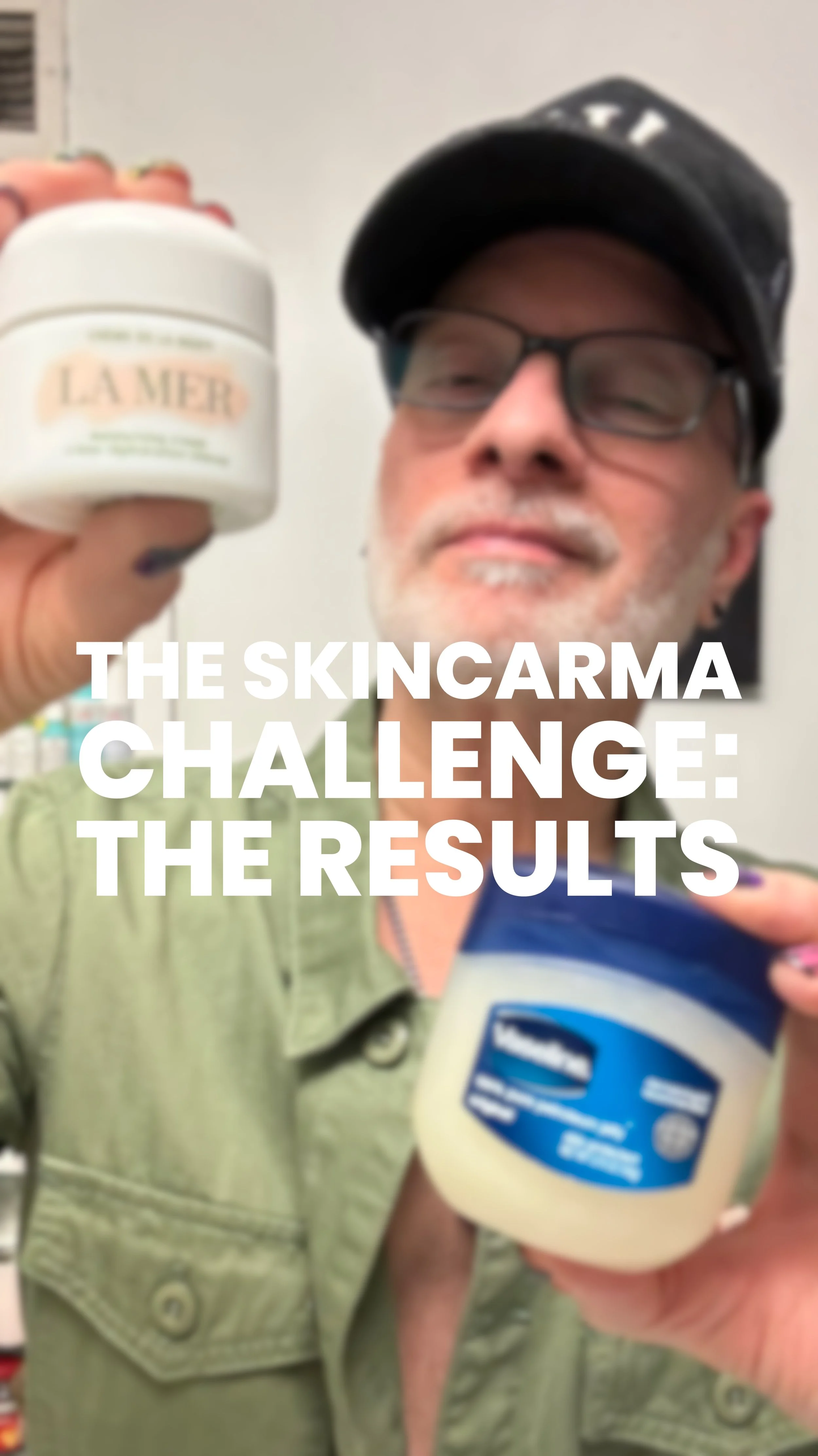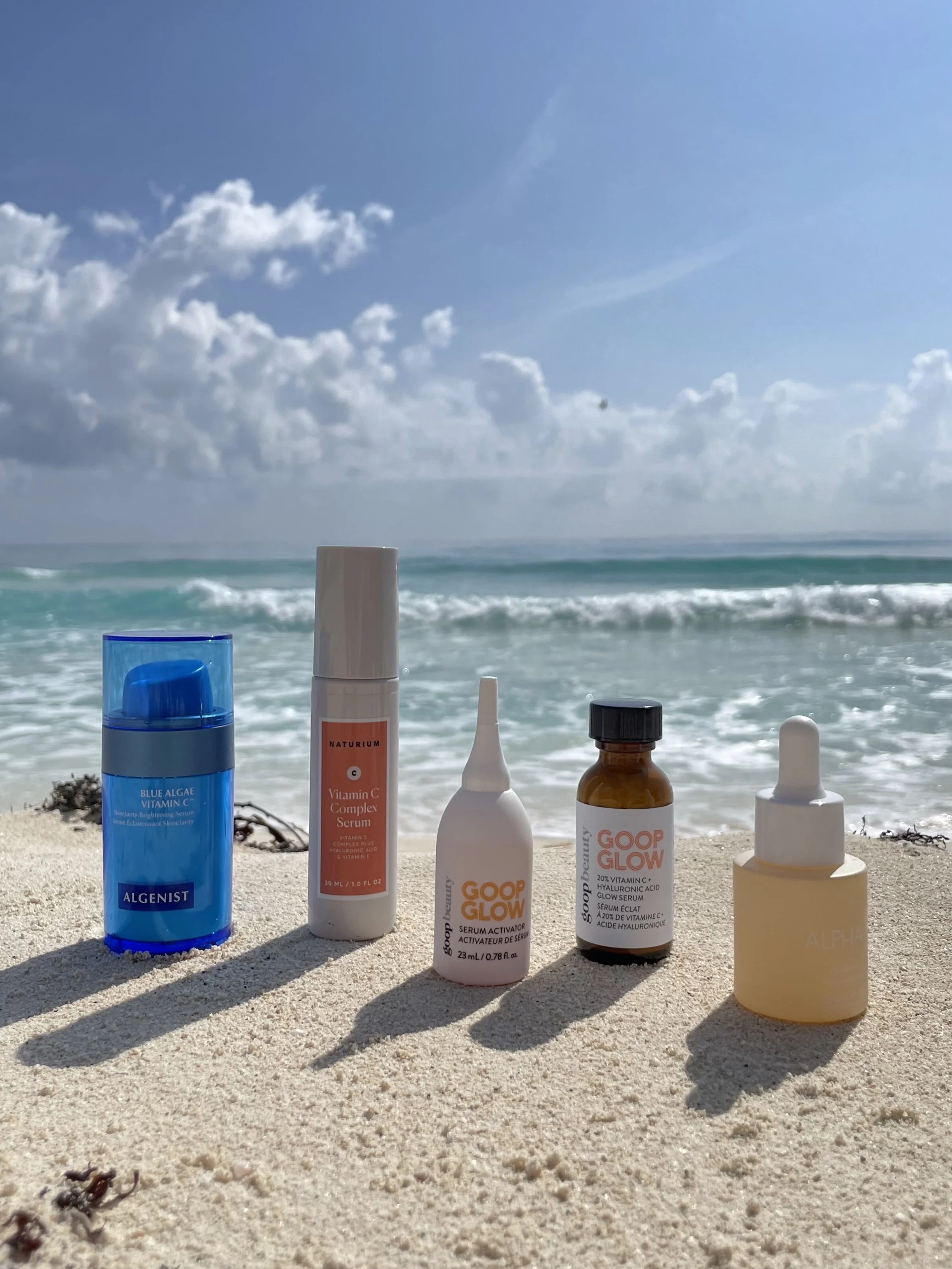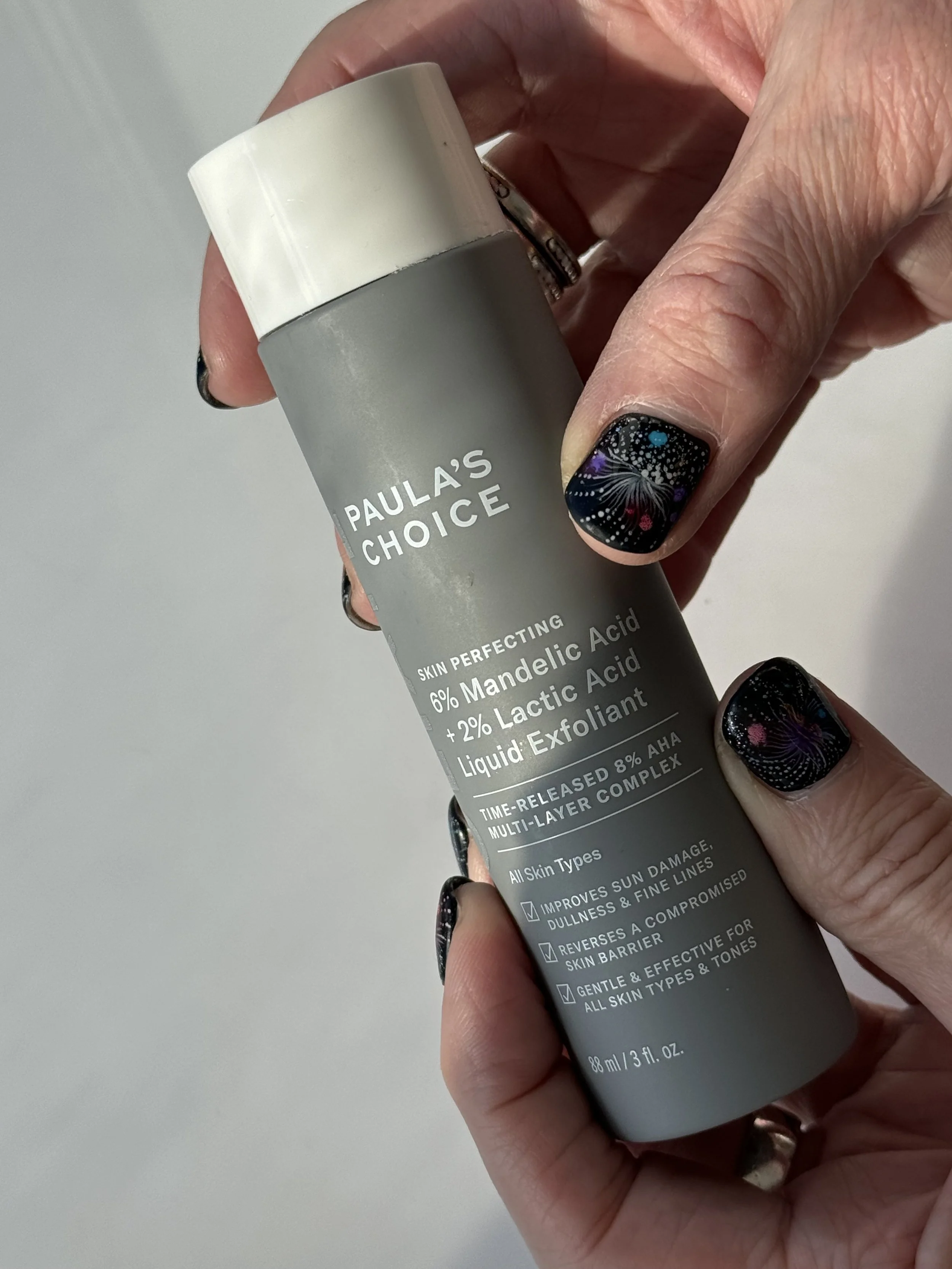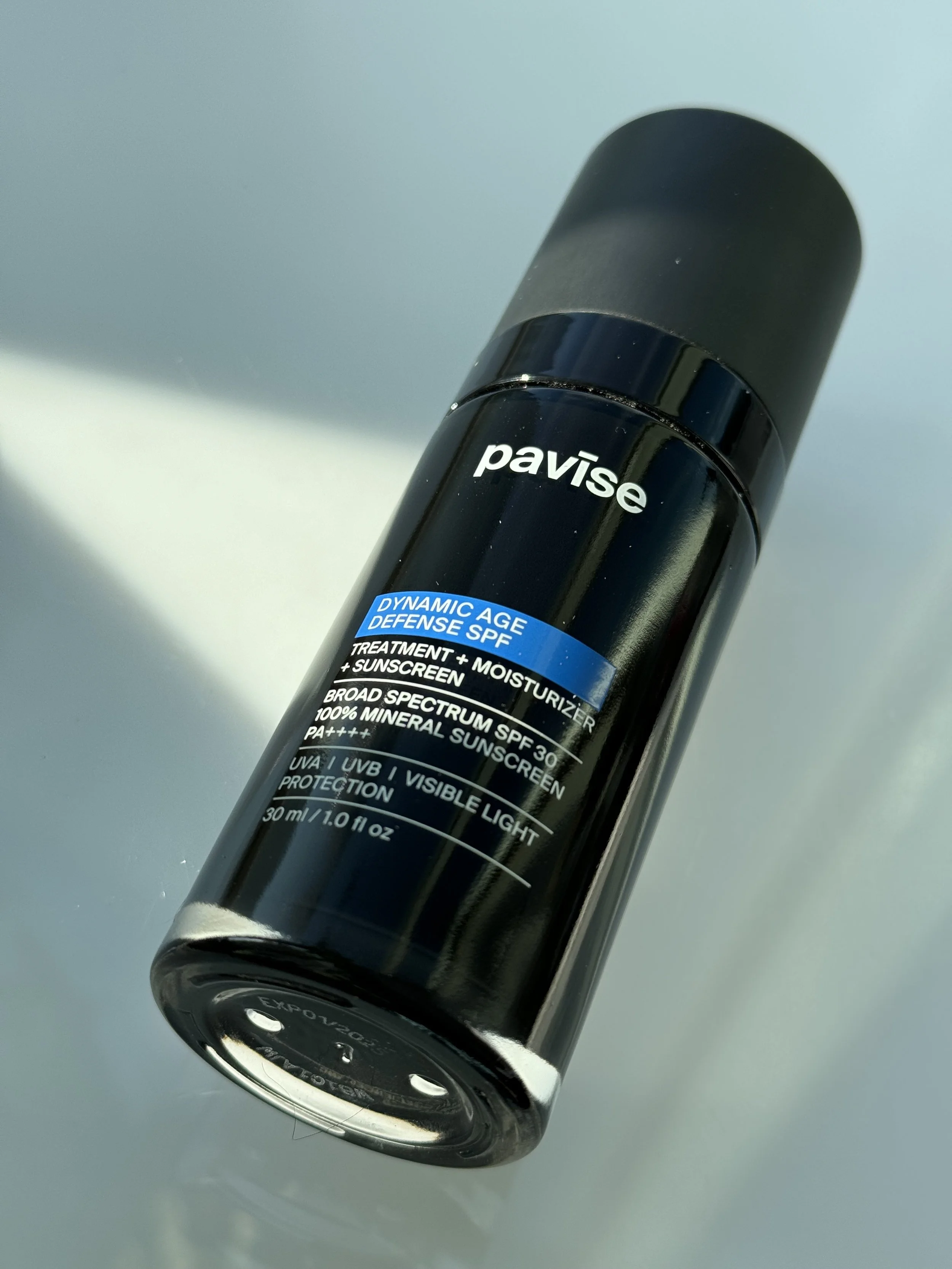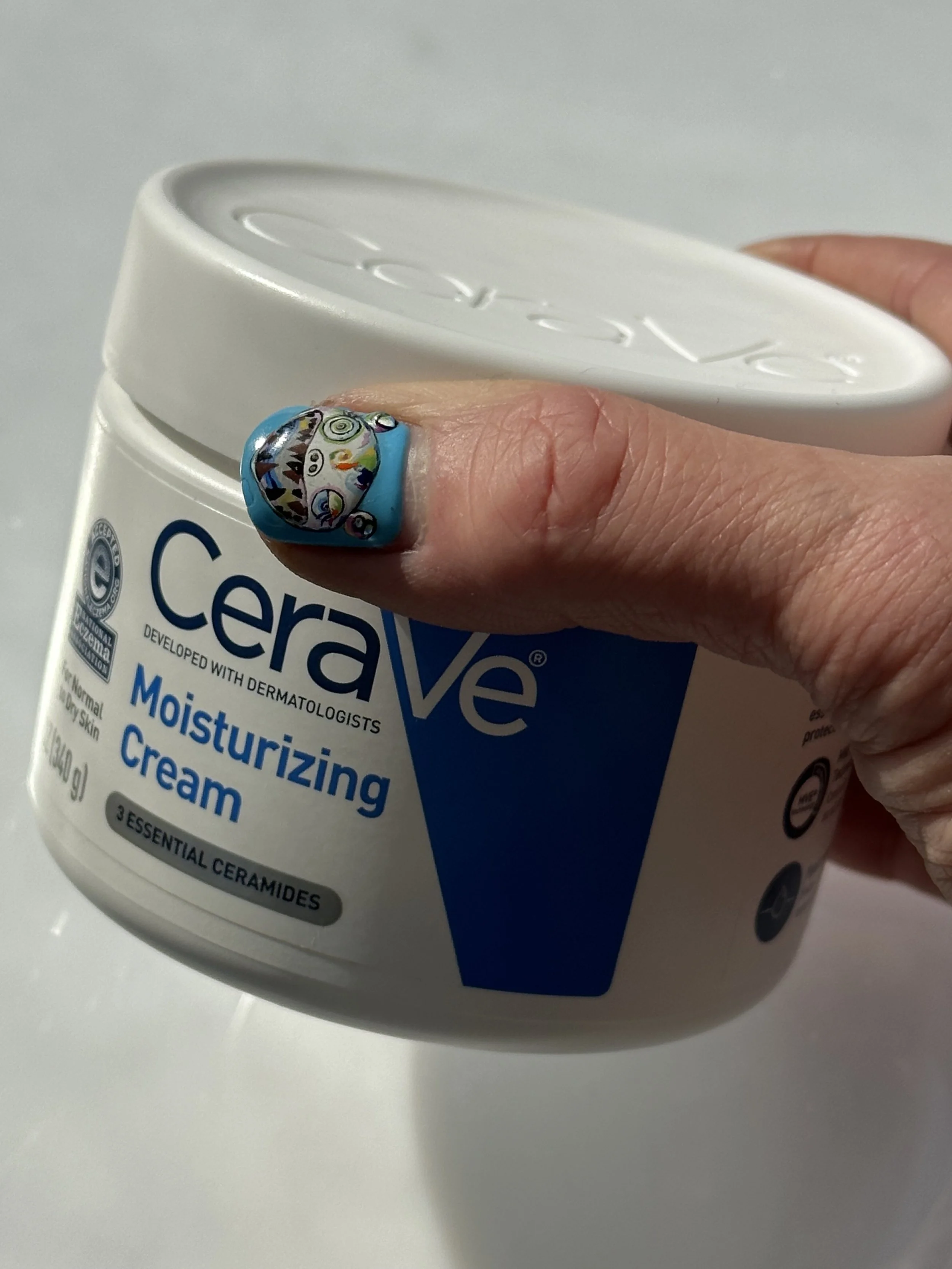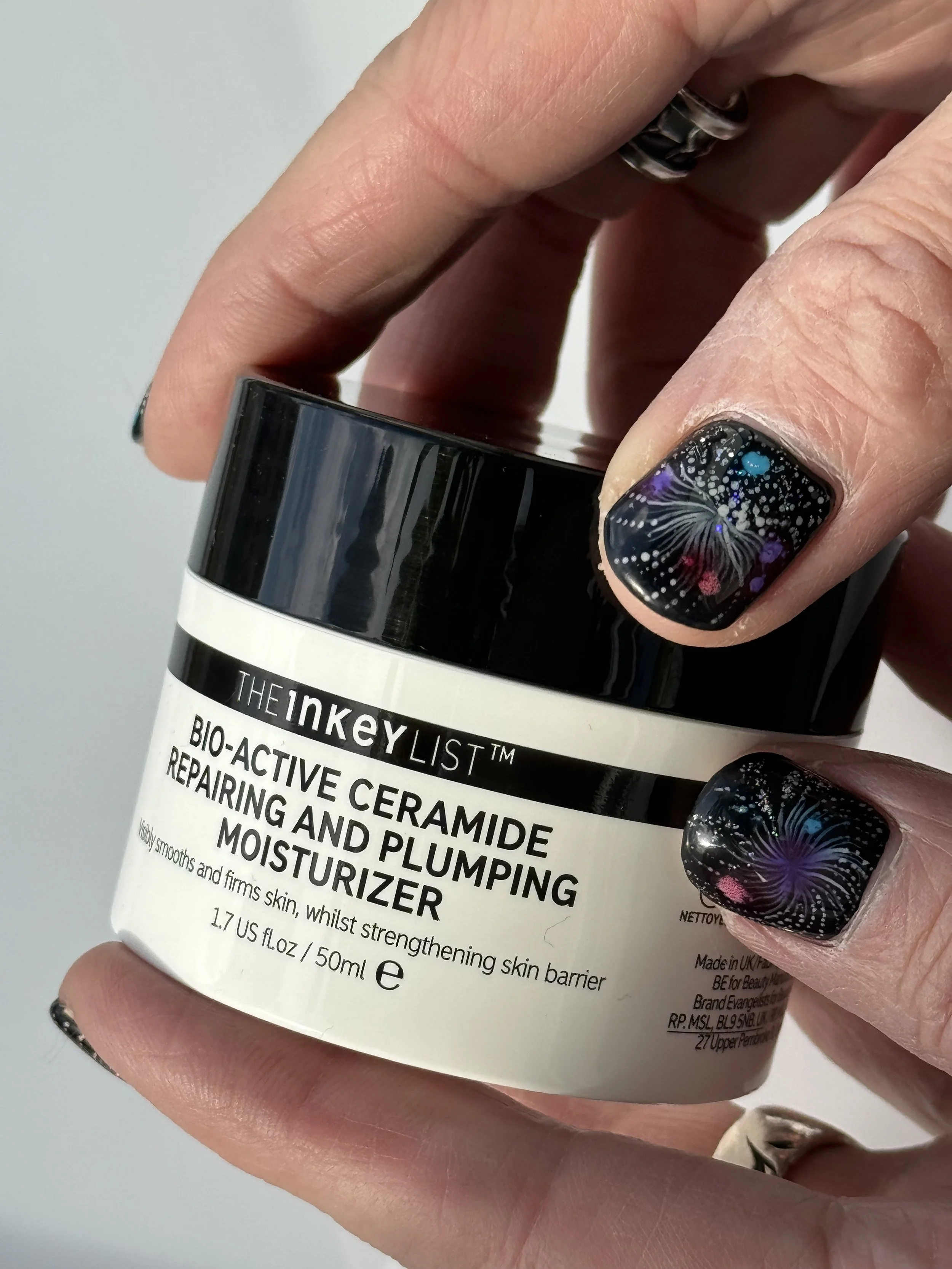PRODUCT REVIEW: UNTOXICATED MOISTURE BOOST HYDRATING CREAM - What to do when you have an allergic reaction to skincare? What are ceramides and what do they do?
UNTOXICATED MOISTURE BOOST HYDRATING CREAM
Winter is hell for my skin. Here in Brooklyn, the cold, dry air in January and February is really problematic. I have normal, balanced skin throughout the year but in winter everything changes. Without proper care, my skin can quickly dry out and appear aged. Yikes!
In fact, it doesn’t just dry out, it hollows out.
The first place to show winter ‘wear and tear’ is always my neck. As my skin struggles to hold moisture, it loses density, sags and, yes, it hollows TF out. Ugh! I hate the cold.
But the last few years, I’ve learned how to fight back and maintain optimal skin health in frigid air. A denser face cream for dry skin is the best weapon for combatting dryness and dehydration when the dry, low-humidity air around you sucks the moisture (and life!) out of your skin. A rich moisturizer packed with replenishing plant oils has an occlusive effect that helps prevent moisture loss through the skin barrier.
My go-to dry skin moisturizer for the last few years has been the Skinfix Barrier+ Triple Lipid-Peptide Cream, which I’ve featured several times on the blog. (Catch my full product review here!) What makes TLPC exceptional for harsh, cold air is its ability to replenish skin lipids like ceramides – essential for holding moisture in and preventing trans-epidermal water loss, or TEWL.
So it’s always exciting for me to discover other replenishing face creams with ceramides – and compare them to the OG. Over the past several weeks, I’ve been testing out the new Untoxicated Moisture Boost Hydrating Cream and I have to say it’s kept my skin optimally healthy and hydrated. It’s even helped prevent my neck from hollowing out. Just like the OG!
And, it’s free of the toxins and allergens known to trigger 99% of skin reactions. Moisture Boost Hydrating Cream is probably the best face cream for dry and sensitive skin on the market today. More on this innovative formula from the bold new brand Untoxicated below…
THE BEST FACE CREAMS FOR DRY SKIN
Skin lipids like ceramides are essential to skin barrier health – and skin barrier health is a hot topic in skincare lately. And it’s about time! As a beauty copywriter, I’ve been writing about the skin barrier on product packaging for more than a decade.
I’ve reviewed numerous products that support skin barrier health over the past several months. A few weeks ago, I wrote about the new Paula's Choice Resist Barrier Repair Advanced Moisturizer – a formula focused entirely on barrier health maintenance. You can catch my review of it here. I also reviewed The Ordinary’s Soothing & Barrier Support Serum on the blog here.
It’s like brand marketers suddenly found skincare Jesus. They’ve finally come to the realization that consumers want authenticity when it comes to their skin health, not marketing bullshit. We expect legitimate products to deliver on their promises – to actually work.
Of course, Paula's Choice, led by the brand’s eponymous founder, Paula Begoun, has been a trailblazer for authenticity in skincare. But there’s a reason why brands like Crème de la Mer and Dr. Barbara Sturm are now tanking after years of fraudulence. With overpriced, overhyped products built on marketing fantasies, these brands are no longer resonating with today’s savvier consumer.
PRODUCT REVIEW: SKINFIX BARRIER+ TRIPLE LIPID-PEPTIDE FACE CREAM
Authenticity in skincare messaging extends to product claims, many of which are loosely regulated by the FDA. Generally, brands can’t just claim an anti-aging face cream or serum minimizes the look of wrinkles if it doesn’t. Or call a product a firming face cream if there’s nothing in that actually firms your skin.
But those are specific product benefits that affect the structure and function of the skin – and as a consequence, its appearance. However, more vague, generalized claims that a product is “anti-aging” or that it is “for sensitive skin” are not as strictly regulated.
Look at the ingredient list of Dr. Barbara Sturm’s Super Anti-Aging Face Cream. There’s very little in her $360 anti-aging moisturizer that the average consumer, let alone a savvy consumer, would recognize as an “anti-aging” ingredient. There’s no Retinol, no sunscreen, no peptides and no significant levels of antioxidants.
According to the formula analyzer What’s In My Jar, there’s but a single ceramide in the Super Anti-Aging Face Cream; Vitamin E at perhaps a 3% concentration; 2% Hyaluronic Acid; and 4% Avocado Oil. Honestly, there’s nothing “super anti-aging” about it. But she can call it an anti-aging cream and charge $360 for it.
IT’S THE 2023 SKINCARMA PRODUCT OF THE YEAR!
With an even greater impact, that kind of unregulated beauty marketing extends to sensitivity and sensitive skin. Most consumer products are required to be tested for safety and irritation. But that doesn’t mean they’re appropriate for sensitive skin – or even made for sensitive skin.
Just because a product is safety-tested doesn’t mean it’s ideal for someone with an actual sensitivity to specific ingredients in topical skincare. If you have sensitive skin or experience allergic reactions to specific ingredients, you’re on your own.
The clean beauty trend in skincare marketing has legitimately pushed marketers and formulators alike to remove common toxins and allergens from product formulas. But there are no set standards or regulations in place. Much of it remains left up to brand marketers to decide how far to go – and whether to make and market products for sensitive skin types.
Classic brands like Cerave have led the way in addressing sensitivity – but even the sensitive skin OG hasn’t led innovation recently and has neglected to update and clean up their formulas. This has created an opening for newcomers like Untoxicated to go all out in their approach to sensitivity and allergic reactions in skincare users.
With Untoxicated you’re not on your own any more…
Before I get into my detailed Untoxicated Moisture Boost Hydrating Cream product review just below, I wanted to explore some of the most frequently asked questions about skin sensitivity as well as the ingredient technologies specific to the new Untoxicated face cream formula...
1. What to do when you have an allergic reaction to skincare?
If you’re experiencing an allergic reaction to a skincare product, no matter how trivial, the first step is to stop using the product.
If the reaction is immediate – as a response to an anti-aging face serum, an AHA toner with Glycolic Acid or an exfoliating moisturizer – gently cleanse the affected area with a mild, fragrance-free cleanser to remove any remaining product that hasn’t been absorbed by your skin.
If the reaction has occurred hours after applying a new product, discontinue use of the product and give your skin time to readjust. It is often difficult to determine what causes a reaction if you’re using multiple skincare products. That’s why it’s always a good idea to patch test products first – and to add only one new skincare product at a time to your routine.
You can help to restore your skin, and calm and soothe irritation, by applying a fragrance-free, hypoallergenic moisturizer that is formulated to be clean and devoid of known toxins and allergens.
The Untoxicated Moisture Boost Hydrating Cream is free from the numerous toxins and allergens known to trigger 99% of skin reactions, notably fragrance, parabens, dyes, sulfates, PEGs and phthalates.
Discover the 2023 Skincarma Product of the Year on the blog here.
Sources: US Dermatology Partners: How to Care for Your Skin After an Allergic Reaction; Self: Here’s How to Deal With an Allergic Reaction on Your Face
2. What skincare is best for allergic reactions?
When it comes to seriously sensitive skin types, and those who are prone to allergic reactions, simple, gentle formulas are often the way to go. Only you know how your skin responds and why it may behave the way it does.
As a general rule, it’s best to seek out products with minimal ingredients to reduce the risk of triggering a reaction. Fewer ingredients means less potential for irritation. Look for a gentle face cleanser without harsh actives and a moisturizer made with clean ingredients – and always free of fragrance, alcohol, dyes and other potential irritants.
Some of the most common skin irritants found in skincare include:
Fragrance: Artificial fragrances are among the most common causes of allergic reactions in skincare. Even products labeled “unscented” often contain masking fragrances that can just as easily sensitize you.
Essential Oils: Though natural, essential oils like lavender oil, peppermint oil, and tea tree oil are known to cause sensitization and allergic reactions.
Preservatives: Ingredients like parabens, formaldehyde, and methylisothiazolinone are used to extend a product’s shelf life; but they can also be irritatants, especially for sensitive skin.
Sulfates: Common in face cleansers, sulfates like sodium lauryl sulfate (SLS) and sodium laureth sulfate (SLES) can strip your skin of its natural oils, essential for maintaining optimum skin health and preventing moisture loss. It can cause dryness and sensitivity.
Drying Alcohol: High concentrations of drying alcohols can be highly irritating to the skin. Over time, they can even weaken or damage the skin barrier. Avoid skincare products with the following alcohols listed in the product INCI: Ethanol (or Ethyl Alcohol), Isopropyl Alcohol (or Isopropanol), Methanol (or Methyl Alcohol), and denatured alcohol (SD Alcohol or Alcohol Denat). See more on why here.
Acids: Exfoliating and resurfacing acids such as Glycolic Acid, Salicylic Acid, and Retinoic Acid have multiple benefits for your skin health but often cause irritation, sensitization and redness, particularly in those with sensitive skin.
Chemical Sunscreens: Sunscreen ingredients like oxybenzone and avobenzone are effective UV filters, but they can cause allergic reactions in sensitive individuals. Opt for a mineral sunscreen like the Pavise Dynamic Age Defense SPF 30 – the 2023 Skincarma Product of the Year.
Dyes and Colorants: Synthetic ingredients used to add color to – or mask the color of – a skincare or makeup product can sensitize the skin.
Propylene Glycol: The popular texture enhancer and solvent found in many face cream moisturizers and other products can cause irritation and allergic reactions in some people.
Discover the 2023 Skincarma Product of the Year on the blog here.
Sources: Paula’s Choice: Alcohol in Skin Care: The Facts; Refinery29: These Derm-Approved Products Are Saving My Allergy-Prone Skin; Who What Where: I Speak to Dermatologists Every Day—These Are the Brands They Always Recommend
3. What are ceramides and what do they do?
Ceramides are one of the most important components of human skin. Because they play a vital role in skin’s moisture levels, they’re essential for maintaining optimal skin barrier health.
What are ceramides? Well simply, ceramides are among a handful of lipids, or fats, found in the stratum corneum – the outermost layer of the skin, also referred to as the skin barrier.
This outer layer of the skin is composed of dead skin cells (corneocytes) held together by a mixture of lipids, including ceramides, cholesterol, and fatty acids. These lipids are crucial for maintaining skin barrier function and, importantly, to helping your skin retain moisture and prevent trans-epidermal water loss (TEWL). The epidermis is composed of between 30%-40% ceramides.
What do ceramides do? Ceramides help to bind skin cells – similar to the mortar between bricks. By holding skin cells tightly together, it is difficult for bacteria to enter the skin and cause irritation, infection and diseases like eczema and acne. And, healthy functioning skin composed of optimal levels of ceramides minimizes water loss through the skin barrier – the leading cause of dehydration.
By maintaining skin hydration and protecting barrier integrity, ceramides actually help to minimize the appearance of fine lines and wrinkles, and give skin a plumper, more youthful looking appearance.
Discover the 2023 Skincarma Product of the Year on the blog here.
Sources: WebMD: What to Know About Ceramides for Skin; The Derm Review: Ferulic Acid In Skincare: Everything You Want To Know About Ferulic Acid; Marie Claire: Ferulic Acid: A Dermatologist's Guide
4. What are Glycolipids?
Glycolipids are a class of lipids, or fats, that play a crucial role in maintaining the skin's barrier function – much like ceramides do.
Glycolipids are comprised of a ‘lipid tail’ and a ‘carbohydrate head,’ and are naturally occurring molecules found within the skin’s outermost layer, the stratum corneum – also referred to as the skin barrier.
And just like ceramides, glycolipid molecules enable the skin to retain moisture and prevent against trans-epidermal water loss, or TEWL. By reinforcing the skin barrier, glycolipids help optimize skin barrier functions and contribute to healthier, more resilient skin that’s better able to resist skin-aging aggressors.
Discover the 2023 Skincarma Product of the Year on the blog here.
Sources: National Library of Medicine, PubMed Central: Glycolipid Biosurfactants in Skincare Applications: Challenges and Recommendations for Future Exploitation; Science Direct: Glycolipid
5. Product Review
Untoxicated Moisture Boost Hydrating Cream Review
I don’t consider my skin to be sensitive at all. In fact, I like to boast that it’s ideally balanced. But it hasn’t always been that way – and it doesn’t mean that my skin can’t act up in the face of external aggressors.
And the greatest external aggressor for me is cold, dry air. If I’m not on my game, my skin quickly dries out in January and February and literally looks its age. And that’s simply unacceptable. I work too hard taking care of my skin for me to look my age!
I have several go-to cold weather face creams – what I consider the best moisturizers for dry skin. And I’m excited to be among the first to try a new lipid-rich face cream from the indie brand Untoxicated. (Psst…catch my products reviews of the best face creams for dry skin here.)
Over the past few weeks, I’ve been using the Untoxicated Moisture Boost Hydrating Cream to combat dryness and keep my skin optimally hydrated and healthy. And it’s delivered on all of my expectations for a cold weather moistrurizer. It’s kept me skin feeling smooth, comfortable and hydrated throughout the day.
I first discovered the Untoxicated brand early in the fall and even had the privilege of meeting the company’s two founders, Annie Stansik and Martin Smith, MD. Notably, Dr. Smith is an Allergist at the Cleveland Clinic and he knows quite a bit about how and why skin may respond adversely to topical skincare – and to ingredients commonly used in popular moisturizers, face cleansers and serums.
He saw what the market was producing and took note of how nearly all skincare brands fall short of the needs of sensitive skin – and particularly skin that is hypersensitive to allergens, however common.
Says Dr. Smith, “Ironically, the very products that promised to help my patients’ inflammation and irritation often made their situation worse.” He teamed up with beauty veteran Annie Stansik to create skincare free of the toxins and allergens known to trigger more than 99% of skin reactions.
And Untoxicated was born.
Two months ago, I was invited to participate in an informal blind test of two face creams for dry skin – to compare and evaluate their efficacy. It was clear that one of the two was a new moisturizer from Untoxicated and I suspected which the other might be.
But I put my suspicions aside to remain as objective as possible. I used both face creams twice daily over the course of three weeks. It was apparent that each hydrated my skin very well and, most importantly, prevented my skin from drying out. I was able to maintain optimal skin health throughout the early days of the NYC winter.
At the end of the test, my hunch rang true. The comparison was between the new Untoxicated Moisture Boost Hydrating Cream and the OG face cream for dry, sensitive skin – the super-rich CeraVe Moisturizing Cream.
But there are differences in their formulations. While each contains multiple ceramides, Hyaluronic Acid and other emollient lipids, Untoxicated’s new Moisture Boost Hydrating Cream is lighter, more elegant, and more easily absorbed. It contains just 14 clean ingredients and is free of the toxins and allergens known to trigger 99% of skin reactions.
The CeraVe formula, a sensitive skin powerhouse for two decades, contains 26 ingredients, several of which are potential irritants in certain individuals, according to EWG. While I’ve long been a fan of the iconic face cream, the formula is almost 20 years old and could really use an update.
6. Pros & Cons
What I like about it: The Untoxicated Moisture Boost Hydrating Cream is quite possibly the best face cream for highly sensitized skin available on the market today. I love its tight ingredient list (just 14 ingredients!), its lighter texture, and most importantly, its ability to keep my skin soft, comfortable and optimally hydrated on even the coldest NYC day.
What I don’t like about it: Some antioxidants would be nice!
Who it’s for: Ideal for dry skins and best for sensitive skin types. Great for those with extreme sensitivities to the allergens found in many common face creams.
SHOP THE BLOG: Want to try it for yourself? Purchase the Untoxicated Moisture Boost Hydrating Cream for $24.95 here.
The Ingredient List of the Untoxicated Moisture Boost Hydrating Cream:
Water (Solvent)
Glycerin (Moisturizer)
Dimethicone (Water Retainer)
Petrolatum (Water Retainer)
Cetearyl Olivate (Emulsifier)
Sorbitan Olivate (Emulsifier)
Ceramide AP (Moisturizer)
Ceramide EOP (Moisturizer)
Ceramide NP (Moisturizer)
Sodium Hyaluronate (Hydrator)
Glycolipids (Conditioner)
Arginine (Moisturizer)
Carbomer (Thickener)
Phenoxyethanol (Preservative)
THIS PAULA’S CHOICE SUNSCREEN IS EVERYTHING!
IS IT REALLY A SCAM?
Find out on my TikTok channel.
MY TOP VITAMIN C PICKS: VITAMIN C SERUMS I’M CRUSHING ON FROM ALGENIST, NATURIUM AND MORE
WATCH MY VIDEO REVIEW
THE BEST NIACINAMIDE SERUMS FOR CLOGGED PORES AND A BRIGHTER COMPLEXION
ON MY YOUTUBE CHANNEL HERE
WATCH MY VIDEO REVIEW OF
SKINCARE HACKS: GLYCOLIC ACID IS THE NATURAL DEODORANT THAT WORKS!
ON MY YOUTUBE CHANNEL HERE
WATCH MY VIDEO REVIEW OF
MY FAVORITE HUMECTANT SERUMS FROM PAULA'S CHOICE, THE INKEY LIST, GHOST DEMOCRACY AND MORE
ON MY YOUTUBE CHANNEL HERE
WATCH MY VIDEO REVIEW
COOL CLEAN FACIAL SUNSCREENS TO KEEP US SAFE AND SMILING IN THE SUN!
ON MY YOUTUBE CHANNEL HERE
WATCH MY VIDEO REVIEW
THE OPULUS BEAUTY LABS RETINOL SYSTEM – THE COOLEST RETINOL INNOVATION I’VE EVER SEEN
ON MY YOUTUBE CHANNEL HERE
WATCH MY VIDEO REVIEW OF
MY WINTER SKIN SAVIOR: SKINFIX BARRIER+ LIPID REPLENISHING SKINCARE
ON MY YOUTUBE CHANNEL HERE
WATCH MY VIDEO REVIEW
A COMPLETE K-BEAUTY ROUTINE WITH THE BEST FACIAL SKINCARE FROM PURITO, COSRX, MISSHA & MORE!
ON MY YOUTUBE CHANNEL HERE
WATCH MY VIDEO REVIEW
THE YEAR’S BEST VITAMIN C SERUMS WITH PAULA'S CHOICE, SUNDAY RILEY, THE INKEY LIST AND MORE!
ON MY YOUTUBE CHANNEL HERE
WATCH MY VIDEO REVIEW OF
A SELFCARE SUNDAY NOT FOR THE FAINT OF HEART – WITH THE PAULA’S CHOICE 25% AHA PEEL!
ON MY YOUTUBE CHANNEL HERE


